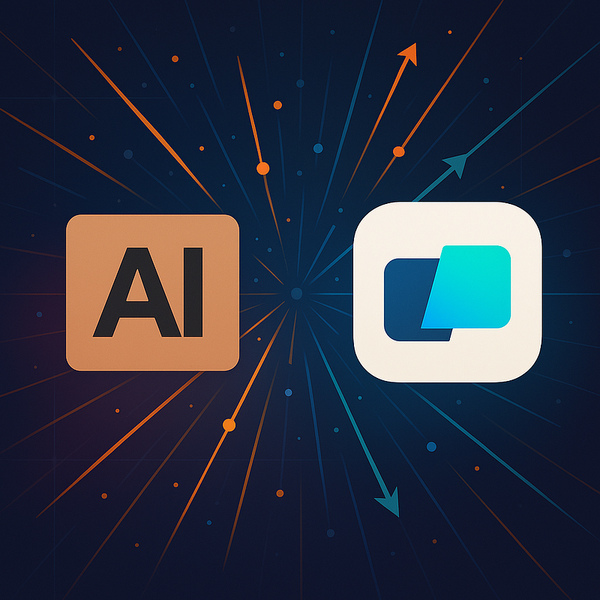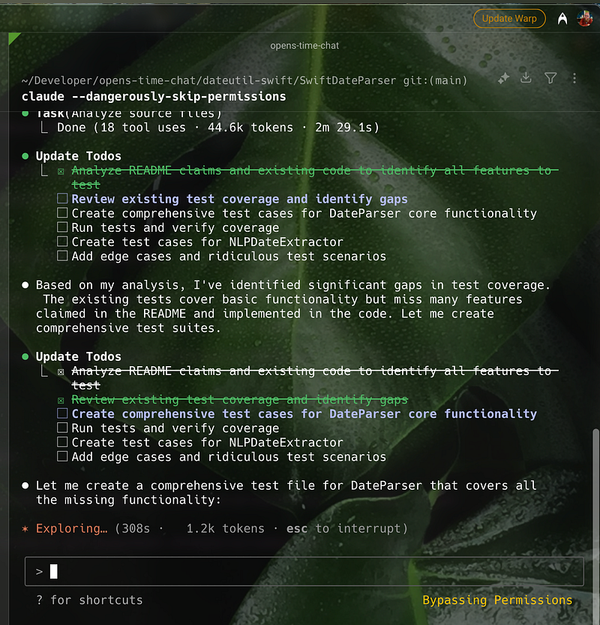The Day I Realised We Don’t Need Apps Anymore
Last week, I watched my AI assistant handle my entire morning workflow in one conversation. No app switching. No copy-pasting. Just me…

Last week, I watched my AI assistant handle my entire morning workflow in one conversation. No app switching. No copy-pasting. Just me saying what I needed and watching it happen. That's when it hit me: Model Context Protocol isn't just another tech standard. It's the beginning of the end for apps as we know them.
Here's What Actually Changed
Let me show you what my morning looked like before and after MCP.
Before MCP: I'd wake up and open seven different apps. Email for overnight issues. GitHub for PR reviews. Slack for team updates. Calendar for meetings. Each with its own interface, its own login, its own way of doing things. By 9 AM, I'd have 15 tabs open and already feel exhausted.
After MCP: I open one chat window and say: "What needs my attention today?" My AI checks everything, correlates the information, and tells me: "You have a critical PR from Sarah that relates to the bug report in your email. Tom messaged about it on Slack. You're both free at 2 PM."
One conversation. Complete context. Actual understanding of how everything connects.
What the Early Adopters Are Building
The shift is already happening. Anthropic launched MCP and early adopters like Block and Apollo have integrated it into their systems. Development tools companies including Zed, Replit, Codeium, and Sourcegraph are working with MCP to enhance their platforms.
Peter Steinberger (@steipete) opened my eyes to this when he showed how AI could handle his entire GitHub workflow without opening the app. Philschmid's overview calls MCP "AI-Native" — designed specifically for modern AI agents rather than retrofitting older standards.
Microsoft's .NET team has already released an MCP C# SDK, while Shopify maintains the official Ruby SDK. The community has built MCP servers for PostgreSQL, Slack, Google Workspace, and dozens more.
Here's what MCP actually does: it turns every service into a standardized data source that AI can access directly. Your Gmail, GitHub, Slack — they all speak the same protocol now. The AI becomes your universal translator.
Think about what this means. We spent decades building prettier apps, better UIs, smoother animations. Companies fought over who had the best interface. But what if the best interface is no interface? What if the best UI is just talking to something that understands what you need?
When My Own Tracking System Became the Proof
I hate time tracking. Every developer does. But as an indie developer, I need to separate client work from side projects and generate invoices. So I built TimeStory — a system that tracks everything automatically. ActivityWatch monitors my screen time. GitLab tracks my commits. Wispr captures my voice notes when I'm thinking through problems.
Here's what changed everything: I connected it all through MCP. Now I just say: "How many billable hours did I work for Mediahuis this week?" or "Generate an invoice for the API project." The AI correlates my coding time with specific commits, separates client work from personal projects, even tracks which merge requests took longest.
The kicker? I can edit everything with my voice. "Add 2 hours for that architecture discussion on Tuesday" — done. No forms, no dropdowns, no date pickers. Just natural conversation with a system that understands my work context.
Why This Actually Works
The breakthrough isn't AI intelligence. It's giving AI direct access to our reality. MCP turns every tool into a data source the AI can query and correlate. Your GitLab commits, your health metrics, your calendar — they all become part of one coherent story.
Every measurement becomes insight. Track your coding time? MCP server. Monitor your health? MCP. Analyze your commits? MCP. The AI sees patterns across all your tools that you'd never spot jumping between apps.
The Hard Truth
After building 100+ iOS apps (Philips Hue, ING, Mediahuis), my intuition combined with recent insights led me to a radical conclusion: the app era is ending. MCP and AI assistants will replace traditional apps sooner than we think.
But here's the twist — this is the perfect time to go indie. While big companies scramble to protect their app ecosystems, independent developers can build the MCP servers and AI integrations that will power tomorrow's interfaces. We're not losing our careers; we're gaining freedom to build what actually matters.
This switch feels more profound than any platform shift I've witnessed. Not iOS to Android. Not mobile to web. This is interfaces to conversations. Apps to protocols. Isolation to integration.
Take care of yourself during this transition. Being a developer means constant adaptation, but this time it's different. This time, we're not just learning new syntax or frameworks. We're reimagining how humans interact with computers.
The future needs builders who understand both worlds — the app paradigm we're leaving and the AI-orchestrated future we're entering. That's us. That's our opportunity.
Read more: Claude Code is My Computer | Peter Steinberger
Read more: The Future of Vibe Coding: Building with AI, Live and Unfiltered | Peter Steinberger
Currently running MCP servers: GitHub, GitLab, Slack, Google Workspace, ActivityWatch, and 12 others. Traditional apps opened this week: 2 (and only because they don't have MCP servers yet).

